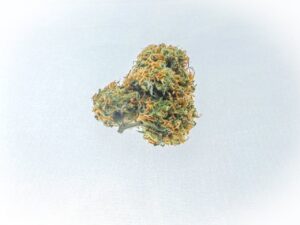Discover why THC might hold the key to managing your chronic stress effectively. Uncover how THC interacts with your body’s endocannabinoid system to promote relaxation and reduce anxiety levels. Learn about the growing body of research supporting the use of THC as a natural remedy for chronic stress, offering a promising alternative to traditional pharmaceutical interventions. Dive into the world of cannabinoids and their therapeutic effects on mental health, paving the way for a deeper understanding of how THC could be the solution you’ve been seeking.
Table of Contents
ToggleUnderstanding Chronic Stress
Definition of Chronic Stress
Chronic stress is a prolonged state of distress that can have detrimental effects on mental health. It occurs when individuals face continuous distress, traumatic stress, brain stress without relief or relaxation. This type of distress can stem from various sources, including work pressure, financial difficulties, or relationship problems.
Chronic stress differs from acute stress, which is short-term and typically results from specific situations like public speaking or deadlines. When chronic stress persists over an extended period, it can lead to severe psychological distress, ptsd, trauma, and impact overall well-being.
Common Causes of Chronic Stress
Life stressors such as job insecurity, family issues, or health concerns are common triggers for chronic stress. Stressful life events like the loss of a loved one or major life transitions can contribute to its development for reasons. The accumulation of distress, negative life events, and problems without effective coping mechanisms can exacerbate the condition.
Moreover, early life adversity, including childhood trauma or neglect, can predispose adolescents to chronic stress and distress later in life, increasing the risk of substance use. These early experiences, including negative life events, shape how adolescents respond to future distress and may increase their vulnerability to developing long-term stress-related disorders.
Long-Term Consequences of Untreated Chronic Stress
Untreated chronic stress, distress, negative life events, and substance use can have profound implications for both physical and mental health. Prolonged exposure to high levels of stress hormones like cortisol can disrupt normal bodily functions and weaken the immune system. This increases the risk of developing various health conditions such as heart disease, obesity, and diabetes.
Furthermore, chronic stress is closely linked to the development of posttraumatic stress disorder (PTSD), anxiety disorders, and substance use. Individuals experiencing chronic stress may exhibit symptoms like persistent worry, irritability, and difficulty concentrating. Over time, these symptoms can escalate into more severe mental health issues if left unaddressed.
THC and Stress Relief: The Science Behind It
Endocannabinoid System
THC interacts with the endocannabinoid system, a network of receptors in the body, to reduce stress levels. This system plays a crucial role in regulating various physiological processes, including mood and stress response. When THC, a drug, binds to these receptors, it may help modulate stress levels and promote a sense of calm.
Scientific Studies
Several scientific studies have shown the stress-relieving properties of THC, a drug. For example, a study published in the Journal of Affective Disorders found that THC can help alleviate symptoms of PTSD, a traumatic stress, by reducing anxiety and improving sleep quality, affecting brain stress. Another study in the journal Neuropsychopharmacology demonstrated that THC can enhance emotion regulation, which is essential for managing stress effectively.
Benefits and Limitations
Benefits:
- Potential relief from chronic stress symptoms such as anxiety and insomnia.
- Improved emotional regulation, leading to better coping mechanisms.
- Enhanced relaxation and reduced physiological responses to stress, such as lowering heart rate.
Limitations:
- Dependence: Regular use of THC for stress relief may lead to dependence on the substance.
- Legal context: The legality of THC varies by region, posing challenges for accessibility.
- Side effects: Some individuals may experience adverse effects such as impaired cognitive function or increased anxiety when using THC.
Acute vs. Chronic Cannabis Use
Short-Term Effects
Acute cannabis use can provide immediate relief from stress by altering neurotransmitter levels in the brain. This leads to a temporary reduction in anxiety and an overall sense of relaxation. Individuals may experience a euphoric high, which can temporarily mask feelings of stress due to substance in their life.
On the other hand, chronic cannabis use, especially when started at an early age, may have adverse effects on stress management. Frequent users may develop a tolerance to the substance, requiring higher doses to achieve the same level of relief. This can lead to a cycle of dependence where individuals may rely on cannabis to cope with stress in life.
Risks and Considerations
Chronic cannabis use poses several risks when it comes to managing stress. Early onset cannabis use during adolescence may be linked to alterations in brain development, particularly in regions responsible for regulating emotions and stress responses. This may increase the likelihood of developing mental health disorders later in life.
For individuals using cannabis as a coping mechanism for chronic stress in life, there is a risk that they may develop substance abuse issues. Over time, reliance on cannabis to alleviate stress can escalate into a substance use disorder, further exacerbating mental health concerns.
Moreover, chronic cannabis use has been associated with an increased risk of exposure to trauma, especially among adolescents. This heightened vulnerability to traumatic experiences may have long-lasting effects on mental well-being and overall quality of life.
Gender Differences in THC Effects
THC Impact on Females
Females may experience subjective effects of THC differently than males due to ovarian hormones. Research shows that female rats exposed to THC exhibit a higher sensitivity to its effects compared to males.
THC’s interaction with ovarian hormones may lead to varying responses, potentially affecting stress relief outcomes for females. This gender-specific response highlights the need for further investigation into how THC impacts chronic stress in women.
Male vs. Female Responses
When comparing male and female responses to THC, studies suggest that differences may exist in how each gender processes the compound. These variations may influence the effectiveness of THC in alleviating chronic stress based on an individual’s sex.
The distinct reactions observed between males and females underscore the importance of considering gender-specific factors when exploring the potential benefits of THC for managing chronic stress.
Cannabis Use During Pregnancy
Risks of Cannabis Use for Stress Relief During Pregnancy
Regular cannabis use during pregnancy can pose significant risks to both the mother and the developing fetus. Cannabis abuse or dependence may lead to cannabis use disorder, resulting in harmful effects on maternal health and fetal development. Pregnant women should be cautious about cannabinoid exposure due to its potential adverse outcomes.
Studies have shown that cannabis use during pregnancy can increase the risk of low birth weight and other complications, similar to alcohol consumption. The impact of cannabinoids on fetal development is a concerning issue that pregnant women should be aware of when considering using cannabis for stress relief.
Impact of Cannabis on Fetal Development
Exposure to cannabis in utero may have detrimental effects on the developing fetus. The presence of endocannabinoids (ECB) in the placenta indicates that the fetus is exposed to cannabinoids when the mother consumes cannabis. This exposure may interfere with normal fetal development and lead to long-term consequences.
Research suggests that prenatal exposure to cannabis may result in cognitive and behavioral issues in children, affecting their learning abilities and overall development. Pregnant women need to understand the potential risks associated with substance use, including cannabis, to protect the well-being of their unborn child.
- Increased risk of low birth weight
- Cognitive and behavioral problems in children
- Long-term consequences on fetal development
Alternatives for Managing Stress During Pregnancy
Instead of turning to cannabis for stress relief during pregnancy, there are safer alternatives that pregnant women can explore. Engaging in relaxation techniques such as deep breathing, meditation, and prenatal yoga can help alleviate stress without exposing the fetus to potentially harmful substances.
Consulting with healthcare providers or seeking support from mental health professionals can also provide effective strategies for managing stress during pregnancy. Building a strong support system through friends, family, or support groups can offer emotional comfort and guidance throughout this challenging period.
- Deep breathing exercises
- Prenatal yoga
- Seeking support from mental health professionals
Coping Mechanisms and THC
Healthy Strategies
Adaptive coping mechanisms, like problem-solving activities, are super important for dealing with stress. When we face tough situations, it’s helpful to come up with solutions to make things better. This is where our regulation skills come in handy. These skills help us control our emotions and reactions when things get overwhelming. Now, let’s talk about reward systems.
Have you ever heard of getting a gold star for doing something good? Well, that’s kind of how reward systems work. When we do something positive or helpful, our brains release feel-good chemicals that make us feel happy and satisfied. This is where THC comes into play for stress relief. THC, a compound found in cannabis plants, can interact with our brain’s reward system to help us feel more relaxed and at ease. It may boost those feel-good chemicals, making us feel calmer and happier. When we combine problem-solving activities with THC, we’re not only working on finding solutions to our problems but also giving ourselves a little extra help in feeling better. Remember, it’s always important to talk to a grown-up or a doctor before trying any new ways to manage stress. They can give you the best advice on what might work for you.
Complementary Approaches
Did you know that THC, a compound found in marijuana, may actually help people who suffer from chronic stress? THC works by interacting with special receptors in our bodies called CB2 receptors. These receptors play a key role in regulating our stress responses. When THC binds to these receptors, it can help reduce symptoms of conditions like PTSD, which is a type of chronic stress disorder. People who use THC may find that they are better able to cope with stressful situations. This means that they can develop healthier ways to deal with stress and manage their emotions.
By targeting specific areas in the brain associated with stress, THC can help individuals feel more relaxed and calm in challenging situations. Overall, using THC under the guidance of a healthcare professional may be a potential solution for those struggling with chronic stress. It’s important to note that more research is needed to fully understand the effects of THC on stress and mental health. If you or someone you know is considering using THC for stress relief, be sure to consult with a doctor to discuss the potential benefits and risks.
Holistic Relief
Incorporating adaptive coping techniques with THC consumption can lead to better stress management outcomes. Balancing the use of THC with healthy coping mechanisms fosters a comprehensive approach to addressing chronic stress.
THC Dosage for Stress Management
Determining Dose
Determining the appropriate THC dosage for stress relief is crucial. Start with low doses and gradually increase to find the right balance. Begin with 2.5mg of THC and observe its effects before adjusting.
Factors Influencing Effectiveness
Several factors influence the effectiveness of THC dosing for stress management. These include individual tolerance levels, metabolism, body weight, and consumption method. Variability in these factors can impact how THC interacts with the body.
Consulting Healthcare Professionals
Consulting healthcare professionals is essential for personalized dosage recommendations. They can provide guidance based on your medical history, current medications, and overall health status. Healthcare providers can help tailor a suitable THC dosage plan specific to your needs.
Future Research on Cannabis and Stress
Clinical Trials
Clinical trials investigating the efficacy of THC for stress relief are crucial. These trials can provide concrete evidence on how THC interacts with cannabinoid receptors to modulate stress responses. By involving a diverse range of participants, including experimental users and individuals experiencing chronic stress, researchers can gather valuable insights into the potential benefits and risks associated with using exogenous cannabinoids for stress management.
Emerging Trends
Recent studies have highlighted the need for more in-depth research on the long-term effects of THC on stress-related hormones like cortisol. Exploring how THC influences cortisol responses in different populations, such as young adults and school students, can offer valuable information on its impact on overall stress levels. Longitudinal studies tracking the brain changes in chronic stress conditions can shed light on the mechanisms through which THC exerts its positive effects on stress regulation.
Animal Studies and Beyond
Animal studies remain a critical avenue for understanding the underlying mechanisms of THC’s stress-relieving properties. By delving into the specific pathways through which THC affects the brain’s stress response system, researchers can uncover new targets for drug development aimed at enhancing stress resilience. Furthermore, investigating the synergistic effects of THC with other compounds present in cannabis can provide insights into creating more effective formulations for managing chronic stress.
Key Areas for Exploration
Did you know that THC, which is a compound found in cannabis, can actually help with chronic stress? But wait, there’s more to it than just THC! There are other compounds in cannabis called cannabinoids that also play a role in reducing stress. These cannabinoids work together to create what’s known as the “entourage effect,” where they enhance each other’s therapeutic effects. When it comes to using THC for stress relief, it’s important to consider how it interacts with any medications you might already be taking for stress. Some medications may have interactions with THC, so it’s always best to consult with a healthcare professional before incorporating THC into your treatment plan.
Additionally, the amount of THC you consume can have different effects on your stress levels. While some people may find relief with lower doses of THC, others may require higher doses to experience the same benefits. It’s all about finding the right balance that works best for you and your individual needs. Exploring the various cannabinoids in cannabis, understanding how THC interacts with medications, and experimenting with different doses can help you find the most effective way to manage your chronic stress. So don’t be afraid to explore your options and find what works best for you!
Summary
Chronic stress is a prevalent issue, and understanding how THC interacts with the body sheds light on its potential as a stress-relief tool. While acute cannabis use shows promise in managing stress, the long-term effects of chronic use warrant caution, especially considering gender differences and implications for pregnant individuals. Exploring coping mechanisms alongside THC dosage guidelines provides a comprehensive view for those seeking stress management strategies. Future research holds the key to unlocking a deeper understanding of cannabis’s role in stress relief.
For those grappling with chronic stress, exploring THC as a potential solution underlines the importance of informed decision-making and responsible use. Seeking professional advice and staying updated on emerging research can empower individuals to navigate stress management effectively.
Frequently Asked Questions
1. Is chronic stress harmful to health?
Chronic stress can negatively impact physical and mental health, leading to issues like high blood pressure, heart disease, anxiety, and depression. It is essential to manage chronic stress effectively for overall well-being.
2. Can THC help in managing chronic stress?
Research suggests that THC, a compound in cannabis, may offer stress relief by interacting with the endocannabinoid system in the body. However, individual responses vary, and it’s crucial to consult a healthcare provider before using THC for stress management.
3. Are there gender differences in how THC affects stress?
Studies indicate that males and females may respond differently to THC due to variations in metabolism and hormonal factors. Understanding these differences can be important when considering THC for stress management based on individual needs.
4. What are coping mechanisms related to THC use for stress?
Coping mechanisms involving THC for stress may include relaxation techniques, mindfulness practices, exercise, therapy, and social support. It’s essential to combine THC use with healthy coping strategies for optimal stress management outcomes.
5. How much THC should one consume for stress relief?
Determining the right dosage of THC for stress management depends on various factors like tolerance levels, individual response, and product potency. Starting with low doses under medical guidance and gradually adjusting can help find an appropriate THC dosage.
Are You Searching For Top-Quality THC Products In Sacramento?
Look no further than A Therapeutic Alternative, a distinguished dispensary leading the charge in advocating for the rights of medical cannabis consumers for over a decade. We are more than just a dispensary; we are a dedicated team committed to enhancing your health and wellness journey with the therapeutic benefits of THC. Perfectly situated in the heart of Midtown Sacramento, close to the medical district, our location is designed for your utmost convenience. Experience our dedication to offering the finest THC products and unmatched service as soon as you enter our welcoming space.
We prioritize accessibility, ensuring our facilities are fully equipped to meet your needs. With an ADA lift and multiple parking options, including a dedicated lot behind our establishment and complimentary street parking, your visit will be seamless and stress-free. Become part of a community that values happiness and wellness through the responsible use of THC. Explore the wide range of THC products in Sacramento at A Therapeutic Alternative, or check out our online inventory. Visit us today and start your journey to holistic health with our supportive team guiding you every step of the way!




